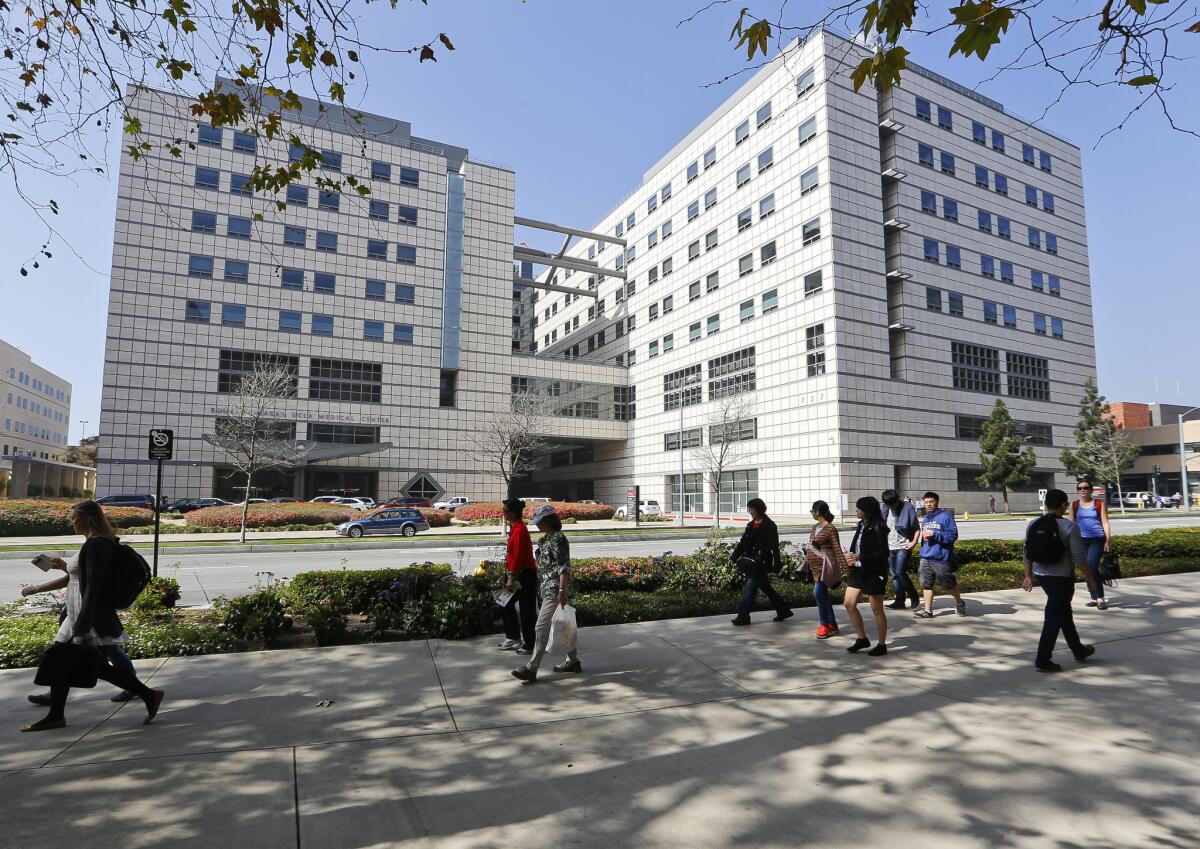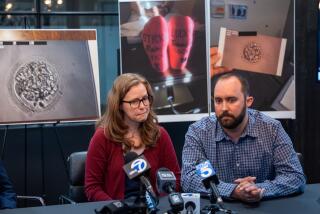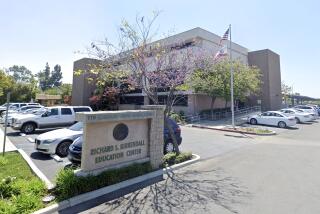Patient, 18, sues medical-scope maker tied to UCLA superbug outbreak

In the first lawsuit stemming from the superbug outbreak at UCLA, an 18-year-old patient accused a major healthcare device maker of negligence for selling a medical scope prone to spreading deadly bacteria.
Aaron Young, a high-school student still hospitalized at UCLA for his infection, sued Olympus Corp. of the Americas in Los Angeles County Superior Court, alleging negligence and fraud.
Young and his San Fernando Valley family declined to comment on the suit filed late Monday, said attorney Pete Kaufman.
The teenager was exposed to a contaminated duodenoscope at UCLA in October and again in January, according to his lawsuit.
As a result, Kaufman said, Young is still receiving treatment for a CRE infection and will be at UCLA’s Ronald Reagan Medical Center for an extended time.
CRE, which stands for carbapenem-resistant Enterobacteriaceae, is highly resistant to antibiotics and can kill up to 50% of infected patients.
UCLA and the University of California regents may be added as defendants after more investigation into the matter, Kaufman said. More patient lawsuits are also expected.
Overall, UCLA has said seven patients were infected with CRE from scopes made by Olympus, a unit of the Japanese electronics giant. The infections contributed to the deaths of two of those patients, the university said, and 179 other patients may have been exposed from Oct. 3 to Jan. 28.
UCLA has declined to comment on specific patients, citing confidentiality laws.
A spokesman for Olympus couldn’t immediately be reached for comment about the lawsuit.
Last week, the company said it was closely monitoring the issue of patient infections and provided customers with additional educational materials on cleaning the scopes.
“The Olympus TJF-Q180V requires careful attention to cleaning and reprocessing steps, including meticulous manual cleaning,” the company said in a statement last week.
The patient’s lawsuit contends that Olympus redesigned its Q180V duodenoscope last year and failed to provide an “effective and validated reprocessing protocol” for the new version.
The new model expanded the range of scope positions in which a guide wire could be securely placed, the complaint says.
Despite the design change, the company gave hospitals and doctors cleaning instructions for an older model, which meant that users “were not able to effectively sanitize and clean the new redesigned Q180V scope,” according to the suit.
Last week, the Food and Drug Administration warned medical providers that following manufacturers’ cleaning instructions does not ensure that these commonly used scopes are free of bacteria that can be passed from patient to patient.
The agency and medical experts say bacteria can become trapped in tiny crevices near the tip of a scope where a camera and other attachments are found.
After the outbreak, UCLA said that it switched to a more rigorous gas sterilization method and that no new infections from the devices have occurred.
Nationally, about half a million patients undergo these procedures known as endoscopic retrograde cholangiopancreatography, or ERCP.
Young’s lawsuit says Olympus has known that the complex design of its duodenoscope made it extremely difficult to clean and exposed patients to serious risks, including lethal infections.
As a result, the suit alleges, the company and its salespeople made false representations to the patient and his physicians concerning the safety of the duodenoscope.
The patient’s complaint offers some support for UCLA, saying it complied with the cleaning protocols provided by the manufacturer.
L.A. County public health officials made a similar determination and said they observed no breaches in UCLA’s cleaning procedures during their investigation of the outbreak.
Let us know if you have been affected by the outbreak at UCLA
Twitter: @chadterhune
More to Read
Inside the business of entertainment
The Wide Shot brings you news, analysis and insights on everything from streaming wars to production — and what it all means for the future.
You may occasionally receive promotional content from the Los Angeles Times.












